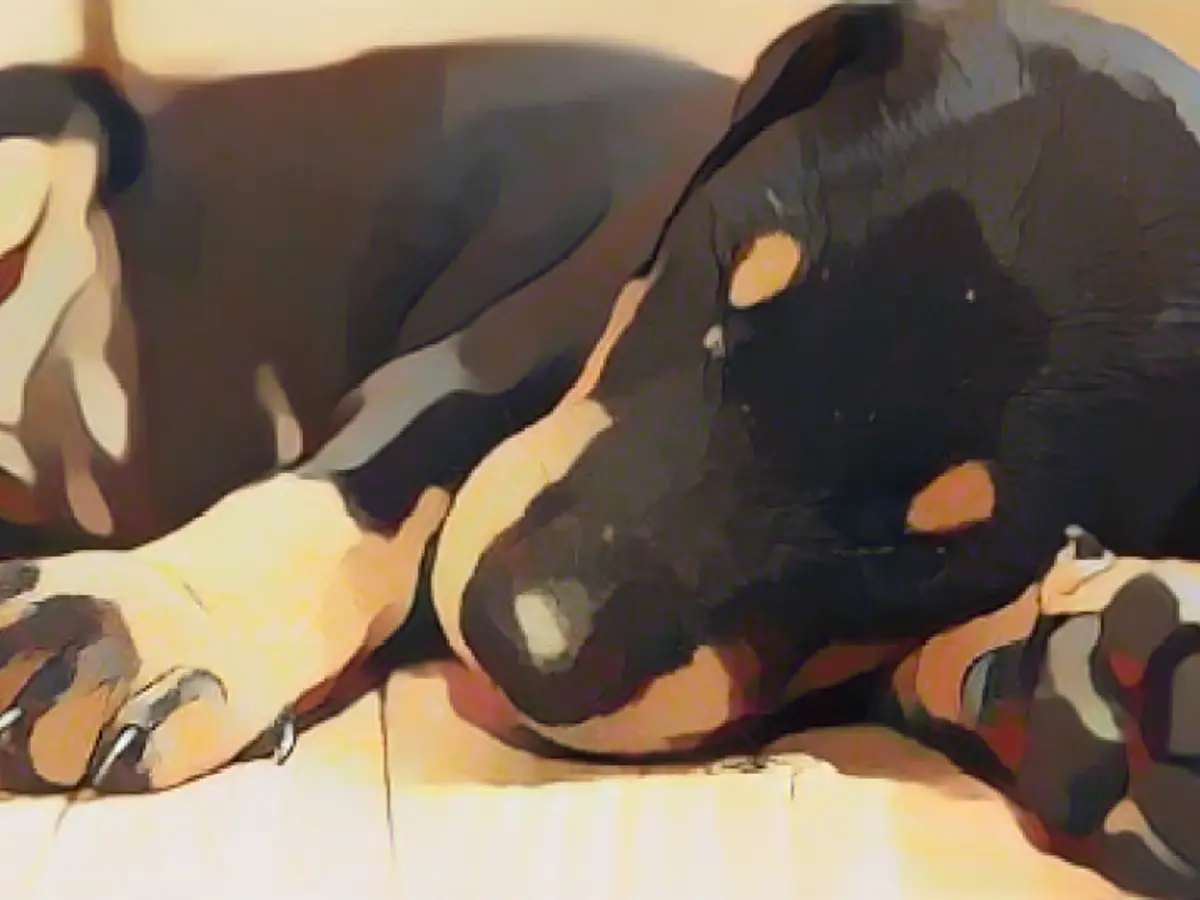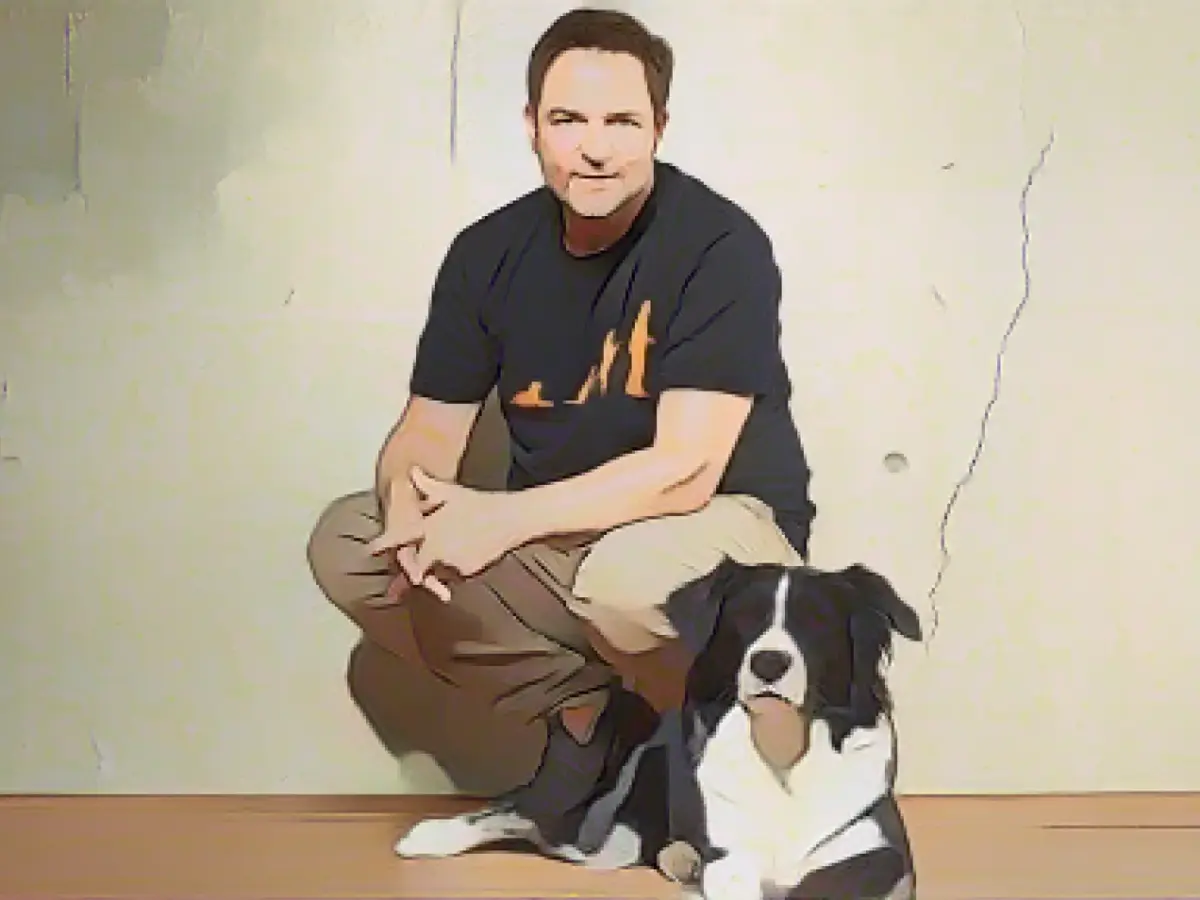Firecrackers and rockets - Dogs on New Year's Eve: Martin Rütter recommends eggnog to calm down - and receives criticism
Every year, New Year's Eve is a red rag for dog owners. Very few animals get on well with firecrackers and rockets - and especially in big cities, people are rarely considerate. In some cases, a week before and a week after New Year's Eve, people fire off firecrackers for all they're worth - and the four-legged friends suffer.
Of course, it's worst on the night of January 1st. And people wonder how they can help the animals during these difficult times. One tip has been coming up again and again for years in this context: Eggnog - in other words, alcohol. This was made popular by Germany's best-known dog professional Martin Rütter, who refers to a vet. Both are criticized for this every year, but insist on it.
Dogs and alcohol: the dose makes the poison
Rütter unflinchingly refers to the veterinarian Ralph Rückert from Ulm, who has written a lengthy text on the effects of alcohol on dogs, which contains many tips against anxiety. Back in 2018, the vet wrote: "Alcohol, which dogs love to consume, especially in the form of eggnog, is of course - as we almost all know - a very potent sedative with an anxiolytic effect in the correct dosage. My terrier Nogger (weighing just under 10 kg) is given a tablespoon of eggnog at 8 p.m. and 11 p.m. on New Year's Eve, and so far it has always tasted very good and, in my opinion, helped considerably."
Years ago, Dr. Rückert was harshly criticized for this - many people describe alcohol as poison for animals. And that's true - if you overdo it. That's why the doctor offers a kind of guide on how to calculate the correct amount. It looks like this:
Weight of dog up to 25 kilograms:Body weight in kilograms x 0.4 x 100 / percent of alcohol = total amount of alcoholic beverage to be given in milliliters.
Weight of the dog from 26 kg to 50 kg:Body weight in kilograms x 0.3 x 100 / percentage of alcohol = total amount of alcoholic beverage to be administered in milliliters.
Weight of the dog over 50 kilogramsBody weightin kilograms x 0.2 x 100 / percentage of alcohol = total amount of alcoholic drink to be administered in milliliters.
The total amount should always be divided into several portions, which should be given two hours apart. In concrete terms, this would mean for a dog weighing 15 kilograms and eggnog with 20 percent by volume: a total of 30 milliliters, half at 21:30, the rest at 23:30, just before the firecracker apocalypse. The calculation: 15 kilograms times 0.4 times 100 divided by 20.
Sharp criticism of Martin Rütter's tip
The Society for Animal Behavior Medicine and Therapy (GTVMT) expressly advises against this, writing: "There is no pharmacologically or medically justifiable reason to give your dog alcohol on New Year's Eve or in other anxiety-inducing situations." Among other things, the critics argue that the formula is mathematically close to the "limit of driving ability", which proves how strongly it affects the animals. The risk of addiction is also mentioned.
Rückert addresses the sometimes harsh criticism of this tip in another text. In the article"Egg liqueur, the deadly danger for your dog!" he writes after a long comment on the GTVMT's letter: "As I mentioned at the beginning, I actually hate reducing my New Year's Eve articles to the egg liqueur topic, because I also describe the perfect veterinary procedure at length. Absolutely nobody should be persuaded or even forced to give their dog liqueur. Anyone who doesn't want to do this for whatever reason should just leave it alone. This article is aimed exclusively at the many dog owners who have found that a properly dosed and small amount of alcohol helps their pet to get through this terrible evening reasonably well."
If there is time, hemp oil with cannabidiol (CBD) is a good alternative. This is also calming, but cannot simply be dosed by formula and without consulting a vet, especially as you should have tested the preparations beforehand.
Classical music, but no medication
The list of tips from dog professionals on how dogs can best get through the night is of course much longer than just eggnog and hemp. The advice is also last-minute tips, as effective therapy against anxiety requires longer training, says Rütter in his text.
To distract the dogs from the firecrackers, you could, for example, serve a tasty snack that the dog can occupy itself with - Rütter mentions stuffed toys or solid chewing bones that the animals can work off. According to the professional, this releases happiness and calming hormones and is distracting.

You can also try to reduce flashes of light by drawing the curtains and drown out the constant banging with music - but not too loud. Light classical music, such as Mozart, can help. Heavy metal and Wagner are not recommended.
You should also offer the animal a place to retreat to, such as a small cave made of blankets. If the dog wants to go to the sofa instead and seek contact with humans, Rütter asks that this be allowed, as this signals to the animal that it wants to seek protection near the person it trusts. Petting is expressly permitted!
However, caution should be exercised with medication such as "Sedalin", "Vetranquil", "Calmivet" or "Prequillan". These only sedate the dog physically, but do not prevent the animal from being fully aware of everything. Medical treatment is only suitable in exceptional cases when dogs suffer from "panic-stricken, uncontrollable anxiety" and would therefore harm themselves. Alternative medicine, such as globules or Bach flowers, have no effect, says Rütter.
One of the best remedies for New Year's Eve anxiety, everyone agrees, is to move to a place where there is either a lack of people or where it is forbidden - for example at airports. If nothing is available spontaneously, the dog professional recommends a longer drive through the countryside, preferably with muted, classical music.
Read also:
- 80 percent of young Germans eat sustainably
- Syphilis cases in babies are increasing dramatically
- Syphilis cases in babies are increasing dramatically
- How to get rid of the flu if you have caught it
- Despite the criticism, Martin Rütter still recommends giving dogs a small amount of alcohol, specifically eggnog, on New Year's Eve to help them deal with the noise from firecrackers and rockets.
- According to the formula provided by veterinarian Ralph Rückert, the correct amount of alcohol for dogs to receive as eggnog depends on their weight and the alcohol content of the eggnog.
- Ralph Rückert defends his tip against criticism, stating that it is aimed at dog owners who have found that a properly dosed amount of alcohol helps their pets get through the night reasonably well.
- In his article "Egg liqueur, the deadly danger for your dog!", Rückert acknowledges that some consider alcohol poisonous for animals if overdone, but emphasizes that a small, properly dosed amount can be helpful.
- If pet owners wish to avoid using alcohol, hemp oil with cannabidiol (CBD) can also be a calming alternative, but should only be administered after consulting with a vet and testing the preparations first.
Source: www.stern.de








